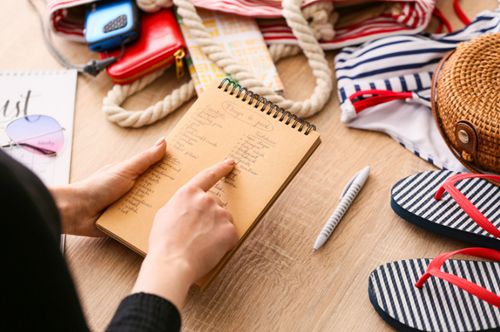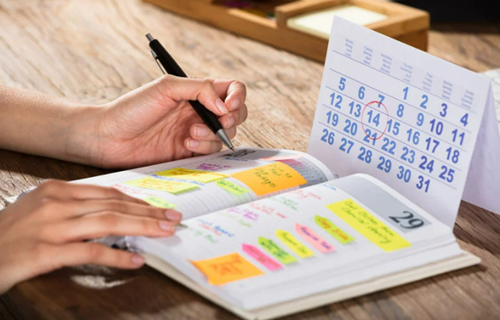When it comes to traveling with toddlers, planning ahead is the cornerstone of a smooth experience. The more effort you put into preparation, the easier it will be to manage the challenges of travel. Toddlers are creatures of habit, and the more familiar and comfortable you can make their travel experience, the better. Here’s a detailed breakdown of how to effectively plan ahead for a stress-free journey:
How to Plan Ahead for Stress-Free Traveling with Toddlers
Create a Detailed Packing List
Packing for toddlers can feel like packing for an entire family in itself. To ensure you don’t forget anything, it’s essential to make a detailed packing list well in advance. This list will help you stay organized and prevent last-minute scrambling. Consider the following when packing:

- Clothing: Pack enough outfits for each day of travel, plus extra in case of accidents or spills. It’s also a good idea to include layers for varying temperatures (airports, planes, and buses can often be either too hot or too cold). Don’t forget socks, shoes, and pajamas, and consider packing an extra jacket or sweater.
- Toiletries and Hygiene Items: Bring your toddler’s essential toiletries, including diapers, wipes, diaper cream, hand sanitizer, toothpaste, and toothbrush. Don’t forget any medications your toddler might need, including pain relievers or allergy medicine. You might also want to pack a travel-sized laundry detergent in case of unexpected spills or accidents.
- Toys and Entertainment: Toddlers are easily bored, so packing their favorite toys, books, and games can help keep them occupied. Try to bring a variety of items to cater to different moods, such as quiet toys for naps or loud ones for active moments. Interactive toys or new toys they’ve never seen before can be especially engaging.
- Food and Snacks: Keep your toddler satisfied with a selection of healthy, mess-free snacks. Fruit pouches, crackers, granola bars, and small sandwiches are good options. If your toddler still drinks milk, make sure to pack enough in either powdered or pre-mixed form, depending on your travel method. Don’t forget a sippy cup or bottle, and pack extra in case of delays.
- Comfort Items: Familiar comfort items like a favorite blanket, stuffed animal, or pacifier, can make all the difference. These can help soothe your toddler if they’re feeling overwhelmed or if they need a sense of comfort in unfamiliar surroundings.
Choose the Right Time for Travel
The timing of your trip can make a huge difference in your toddler’s experience. By choosing the right time to travel, you can minimize stress and maximize the chances that your toddler will be happy and rested throughout the journey. Here are some tips for selecting the best travel time:

- Nap and Sleep Schedule: Plan your travel to coincide with your toddler’s nap or sleep schedule. For example, if your child usually naps in the afternoon, consider booking a flight or starting a car ride in the early afternoon. If your toddler sleeps well during the night, an overnight flight or late departure might be ideal for keeping them asleep for a large portion of the trip.
- Avoid Peak Travel Times: If possible, try to avoid traveling during peak times when airports, highways, or public transport are overcrowded. Traveling during off-peak hours, such as early mornings or mid-week days, can reduce the stress of navigating crowded spaces.
- Build Extra Time into Your Schedule: Traveling with toddlers often requires more time for bathroom breaks, meals, and unexpected delays. It’s essential to give yourself extra time for these activities so you’re not rushing, which can lead to stress and frustration. Arriving early at airports or allowing longer breaks on road trips can ensure you have a calmer experience.
Know the Travel Logistics
Whether you’re flying, driving, or taking the train, understanding the logistics of your trip can save a lot of stress. Do your research ahead of time to ensure you know what to expect.
- Flight Arrangements: If flying, check with the airline to understand their specific policies for traveling with toddlers. Most airlines offer priority boarding for families with young children, and some may allow you to bring a stroller or car seat. Also, be aware of the length of the flight and if there are layovers, as this could affect your toddler’s mood and nap schedule.
- Car Travel: If you’re driving, plan your route and make sure you have a comfortable car seat for your toddler. Don’t forget to plan for frequent rest stops. Toddlers need breaks to stretch, use the bathroom, and avoid getting cranky. Apps like Google Maps can help you identify areas along your route where you can stop for snacks or bathroom breaks.
- Accommodation and Local Amenities: If you’re staying in a hotel or Airbnb, check in advance if they offer family-friendly amenities, such as cribs, high chairs, or kids’ entertainment. You may also want to research nearby parks or indoor play areas where your toddler can run off some energy. If you’re traveling internationally, look up nearby grocery stores to stock up on familiar foods for your toddler.
Prepare for Health and Safety
A crucial part of planning for a trip is ensuring your toddler’s safety and health are taken care of. You don’t want to be caught off guard if a health issue arises or if there’s an emergency.
- Health Documents and Insurance: If you’re traveling internationally, bring your toddler’s health records and any necessary documents, such as vaccination records. Be sure you have travel insurance that covers medical emergencies, especially if traveling abroad. If your toddler takes any medications, bring enough to last the entire trip, along with any prescriptions in case you need to refill them while away.
- First Aid Kit: Pack a small first aid kit for the trip. Include essentials like band-aids, antiseptic wipes, a thermometer, and pain relievers. If your toddler has allergies or specific health needs, be sure to bring the necessary medications or treatments, such as an EpiPen or inhaler.
- Emergency Plan: Make sure you know the emergency numbers and healthcare facilities in your destination. If you’re flying or traveling internationally, it’s especially important to be aware of where the nearest hospital or medical center is located. Consider a child ID bracelet with your contact details, so if you get separated, it will be easier for others to help reunite you.
Create a Flexible Itinerary
Traveling with toddlers often requires a bit more flexibility than you might be used to. Toddlers can be unpredictable, and the last thing you want is to be tied to a rigid schedule. While it’s important to plan, try to build in some flexibility:
- Pace Your Day: Rather than scheduling back-to-back activities, aim for a relaxed pace. Give your toddler plenty of time to rest, have snacks, and play. Factor in downtime for your little one to recharge, especially if you’re traveling across different time zones or to a place with a lot of stimulation.
- Expect the Unexpected: While it’s important to have a general plan, be prepared to adjust your plans if needed. If your toddler gets tired or overwhelmed, don’t be afraid to skip an activity or take an extended break. The more flexible you are, the less stressful the trip will be for everyone.
Be Prepared for Delays and Setbacks
Delays and setbacks are an inevitable part of traveling, especially when you’re traveling with toddlers. Whether it’s a flight delay, traffic, long security lines, or other unexpected events, it’s essential to be mentally prepared and have strategies in place to manage these situations without stress. Traveling with toddlers requires extra flexibility, so having a plan for handling delays can make a big difference in keeping both you and your child calm.
Here are some detailed tips to ensure you’re prepared for delays and setbacks so you can maintain a stress-free experience:
Pack Extra Essentials
When you’re traveling with toddlers, it’s always wise to overpack a bit, especially when it comes to the essentials. Extra snacks, toys, and comfort items can make waiting for a delayed flight or long car ride more bearable. Here’s what you should consider packing in anticipation of delays:
- Snacks and Drinks: Pack extra snacks that are easy to eat on the go, such as granola bars, crackers, fruit pouches, or cheese sticks. These are great for when your toddler gets hungry or cranky. If you’re flying, remember that airport rules about liquids can be tricky, but you can bring empty bottles and fill them once you’ve passed security. If your child is used to drinking milk or juice, try to pack extra in small, spill-proof containers.
- Toys and Activities: When delays happen, it’s easy for toddlers to become restless and bored. Bring a variety of small toys, such as building blocks, action figures, or plush animals. Keep a few quiet, portable toys that won’t disturb other travelers. Also, interactive toys that engage your toddler in a task, such as coloring books or puzzles, can help pass the time. For long waits, consider downloading toddler-friendly games, shows, or apps onto a tablet (though make sure to limit screen time).
- Comfort Items: Familiar comfort items like a favorite stuffed animal, blanket, or pacifier can help soothe your toddler during a stressful situation. Having these items available during long waits or delays can help keep your child calm and provide them with a sense of security.
Plan for Bathroom Breaks
Delays and setbacks often lead to longer waits, and toddlers tend to need bathroom breaks more frequently than adults. Being prepared for these moments can prevent uncomfortable situations and make everything more manageable.
- Locate Restrooms Early: When you arrive at an airport, train station, or rest stop, find out where the nearest bathrooms are. Airports and bus stations often have family restrooms, which provide a more convenient option for toddlers. Take note of the facilities before you get caught in a rush or a delay.
- Pack Extra Diapers or Pull-Ups: If your toddler is still in diapers or pull-ups, it’s essential to have enough on hand for potential delays. Keep extra diapers in your carry-on or travel bag. If your toddler is potty-trained, but still learning, consider bringing a portable potty seat for public bathrooms, so your child feels more comfortable.
- Use Bathroom Breaks as an Opportunity to Stretch: Delays are often the perfect time to let your toddler move around and burn off some energy. Take advantage of bathroom breaks by encouraging your child to walk around, stretch, or play for a few minutes (in a safe and appropriate area). This will help prevent restlessness during the wait.
Keep a Calm and Positive Attitude
It’s easy to feel frustrated or stressed when faced with unexpected delays, especially when traveling with toddlers. However, your child will pick up on your energy, and if you’re visibly upset, it can make the situation even more challenging. Staying calm and positive can help your toddler stay relaxed too.
- Take Deep Breaths: In moments of frustration, take a few deep breaths to center yourself. If you’re feeling anxious, take a step back, pause, and reframe the situation. A flight delay could mean more time for your toddler to explore or play, or it may just give you a chance to rest before the next leg of the journey. Try to shift your mindset to see the situation as an opportunity for a moment of connection or bonding.
- Be Patient with Your Toddler: Delays can be difficult for toddlers, and they may act out or become more clingy or fussy. Acknowledge their feelings and provide comfort, but also try to stay patient. Having a calm demeanor helps your toddler feel more secure and can prevent further tantrums or distress. If you feel your toddler getting frustrated, try redirecting their attention to a new activity or comfort item.
Have Backup Entertainment for Emergency Situations
Sometimes delays can be longer than expected, and your toddler may run out of things to do. Having a backup entertainment plan can keep everyone happy. Here are a few ideas:
- Portable DVD Player or Tablet: If you’re facing a long wait or a flight delay, having a tablet with pre-downloaded videos or games can be a lifesaver. Consider showing your toddler a new video or letting them watch one of their favorite shows. If you prefer, a portable DVD player loaded with a couple of their favorite movies can also be great entertainment. (Just remember to pack headphones to avoid disturbing others!)
- Books: If screen time is not an option or you’re looking for a break from it, bring a selection of your toddler’s favorite books. Picture books or interactive books with flaps and textures can be especially engaging. Reading together is a great way to pass the time while also nurturing your child’s development.
- New Toys or Activities: Sometimes, the best way to keep your toddler entertained during long delays is to bring a few new, exciting toys or activities they’ve never seen before. These “surprise” items will keep them engaged and interested, especially when they’re feeling bored or restless.
Know How to Handle Travel Delays in Airports
Airports can be some of the most stressful places to be when delays occur. Crowds, long lines, and the general chaos of flying can overwhelm both adults and toddlers. Here’s how to manage travel delays in the airport:
- Ask for Assistance: If your flight is delayed and you’re feeling overwhelmed, don’t hesitate to ask the airline staff for assistance. Some airlines offer amenities like access to lounges (where you and your toddler can relax), free snacks, or priority seating in case you need a more comfortable spot to wait. If your flight is delayed for several hours, some airlines may also provide meal vouchers for families.
- Find Quiet Spaces: Many airports have quiet rooms or family-friendly areas where you can relax and give your toddler a break from the noise and crowds. If you’re stuck in an airport for a long period, find a spot where your toddler can move around or nap comfortably without too much distraction.
- Plan for Extra Time: When your flight is delayed, it’s important to remain patient and flexible. You may have to adjust your plans, so always allow extra time in your itinerary for things to go wrong. If possible, give yourself a buffer time between connecting flights or other transportation options, as delays can affect your overall schedule.
Travel Insurance for Extra Peace of Mind
While it’s always good to be prepared for delays, travel insurance can offer an additional layer of peace of mind. Many travel insurance policies cover delays, missed connections, or cancellations, especially for flights. Here’s how it can help:
- Flight Delays: Travel insurance can reimburse you for meal expenses or even overnight accommodations in the event of a significant flight delay. Some policies will also provide a refund if your flight is canceled altogether or if your luggage is delayed.
- Trip Interruption: If unforeseen circumstances like weather cause long delays or trip interruptions, insurance can cover some of the costs and help you get back on track.
By being prepared for delays and setbacks, you’ll be able to manage these inevitable hiccups with less stress and more ease. Having extra snacks, entertainment, and comfort items, staying patient, and using the opportunity to relax will not only make the experience easier but also make it more enjoyable for both you and your toddler. The key is staying flexible, calm, and ready to adapt to whatever comes your way.
By planning ahead with these tips, traveling with toddlers becomes less of a challenge and more of an enjoyable adventure for everyone. Preparation is the key to a smooth journey, and with a little foresight, you can tackle almost anything that comes your way.








